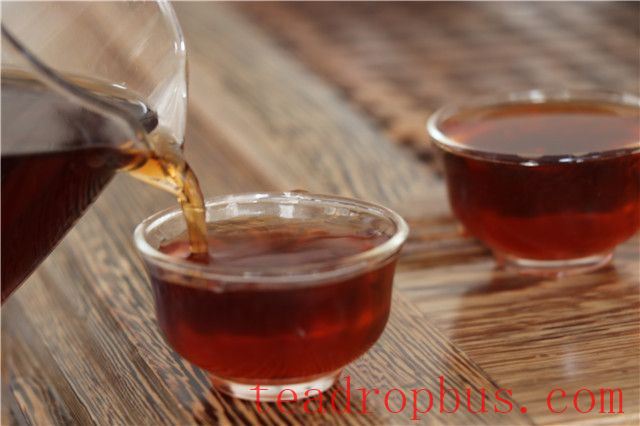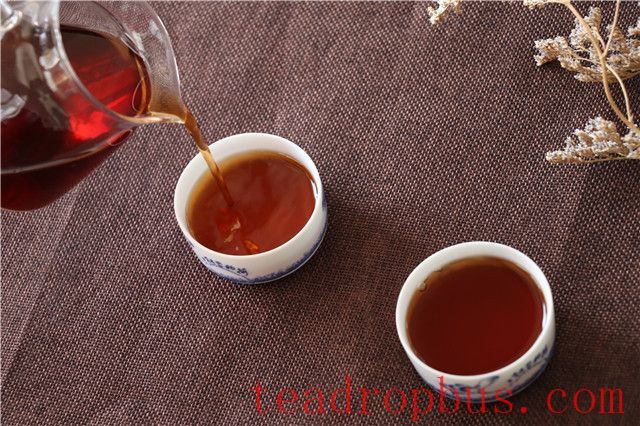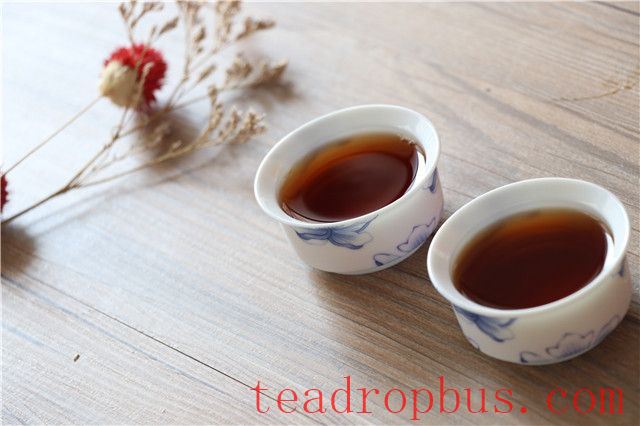Pu'er Tea is divided into raw and ripe varieties based on fermentation. Pu'er ripe tea is made from Yunnan large-leaf sun-dried Green Tea as a raw material, processed through pile-fermentation, and other techniques. It has a dark red color, a pure and mellow taste, and a unique aged fragrance. Pu'er ripe tea has a mild nature and has Health benefits such as nourishing the stomach, protecting the stomach, warming the stomach, lowering blood lipids, and aiding in weight loss. Ripe Pu'er tea contains theaflavins, thearubigins, theabrownins, gallic acid, and Vitamin C, among others. These substances play a crucial role in enhancing the function of the human immune system.

What are the benefits and effects of drinking Pu'er ripe tea?
1. Nourishing and Protecting the Stomach
In appropriate concentrations, drinking mild Pu'er tea does not irritate the digestive system. The sweet, smooth, and rich Pu'er tea that enters the body forms a protective layer on the surface of the stomach when it reaches the gastrointestinal tract. Long-term consumption of Pu'er tea can help to nourish and protect the stomach.
2. Anti-Aging
Catechins in tea have anti-aging properties. The total amount of catechins in Yunnan large-leaf tea is higher than in other tea varieties, making its anti-aging effect superior to other types of tea.

3. Lowering Lipids and Reducing Pressure
Long-term consumption of Pu'er tea can reduce cholesterol and triglycerides, making it useful for treating obesity. Drinking Pu'er tea can cause physiological effects such as vasodilation, lowered blood pressure, decreased heart rate, and reduced cerebral blood flow. Therefore, it has good therapeutic effects on hypertension and cerebral arteriosclerosis patients.
4. Promoting Dental Health
Pu'er tea contains many biologically active components with antibacterial and disinfectant properties. Experiments using Pu'er dental care tea to inhibit the adhesion of Streptococcus mutans showed that Pu'er dental care tea can prevent plaque formation, with the best effect at a concentration of 1%.

Tea is one of the world's three well-known beverages, containing tannic acid, Theanine, proteins, sugars, carbohydrates, chlorophyll, carotene, essential oils, vitamins A, B, C, E, and trace elements, among over 400 components. China is the birthplace of tea, and tea has been consumed as a unique Chinese beverage for thousands of years. Throughout the ages, ancient medical texts have mentioned that tea can quench thirst, refresh the mind, promote urination, treat coughs, clear phlegm, improve vision, enhance thinking, alleviate anxiety, and eliminate bloating and toxins.